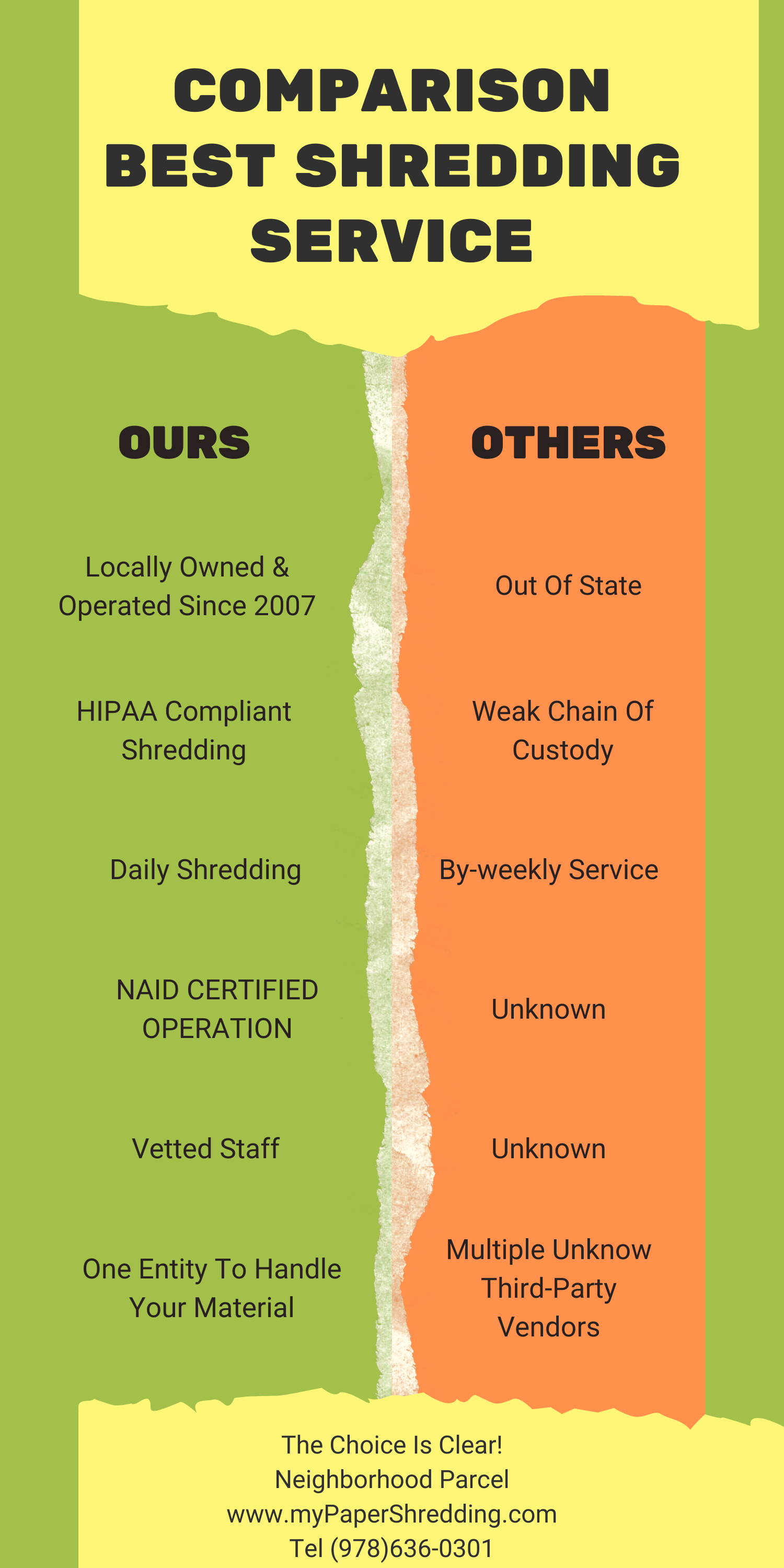The Importance of HIPAA Compliance and Safeguarding PHI
In the rapidly evolving landscape of healthcare, protecting patient information is of utmost importance. The Health Insurance Portability and Accountability Act (HIPAA) is a crucial piece of legislation that plays a key role in ensuring the privacy and security of patient information. This article will provide an overview of HIPAA, the costs associated with its violations, and ways to safeguard Protected Health Information (PHI). Additionally, we will recommend using a secure medical shredding service in Boston, MA, to help maintain compliance and safeguard sensitive information.
What is HIPAA?
HIPAA, enacted in 1996, is a federal law that establishes standards for the protection of sensitive patient health information. It consists of two main rules: the Privacy Rule and the Security Rule. The Privacy Rule sets the standards for who can access and share PHI, whereas the Security Rule establishes standards for securing PHI that is stored or transferred electronically. Together, these rules mandate healthcare providers, health plans, and healthcare clearinghouses (covered entities) as well as their business associates to implement necessary safeguards to protect the privacy and security of PHI.
Cost of HIPAA Violations
Non-compliance with HIPAA can lead to severe consequences, both financially and legally. Penalties for violations are tiered based on the level of negligence and can range from $100 to $50,000 per violation, with a maximum annual penalty of $1.5 million. Moreover, violations can also lead to criminal charges, with fines up to $250,000 and imprisonment for up to 10 years. Additionally, organizations may also face reputational damage, loss of patients’ trust, and potential lawsuits. Therefore, it is critical for covered entities and their business associates to ensure strict compliance with HIPAA regulations.
Safeguarding PHI-Protected Material
Implementing proper safeguards is key to protecting PHI and maintaining HIPAA compliance. Here are some essential strategies to safeguard PHI-protected material:
- Conduct a Risk Assessment: Regularly assess the risks and vulnerabilities to the confidentiality, integrity, and availability of PHI.
- Implement Administrative, Physical, and Technical Safeguards: Develop and enforce policies and procedures to ensure the privacy and security of PHI. This includes access controls, encryption, and secure transmission of electronic PHI.
- Train Employees: Provide ongoing training to employees on HIPAA regulations and the organization’s policies and procedures for protecting PHI.
- Regularly Monitor and Audit: Regularly monitor and audit access to and use of PHI to detect and prevent unauthorized access or disclosure.
- Use Secure Methods for Disposal of PHI: Proper disposal of PHI is crucial to prevent unauthorized access or disclosure. This includes shredding paper records and securely deleting electronic records.
Secure Medical Shredding Service in Boston, MA
One essential aspect of safeguarding PHI is the secure disposal of physical records. Mydocumentshredding.com, located at 1215 Main St, Tewksbury, MA 01876, offers secure medical shredding services in Boston, MA. They provide a reliable and cost-effective solution for the disposal of medical records and other sensitive documents. By using a professional shredding service, organizations can ensure the secure disposal of PHI, maintain compliance with HIPAA regulations, and protect the privacy and security of their patients.
Conclusion
HIPAA compliance is crucial for safeguarding the privacy and security of patient information. By implementing necessary safeguards, conducting regular risk assessments, training employees, and using secure methods for the disposal of PHI, organizations can maintain compliance and protect the well-being of their patients. Utilizing the secure medical shredding services of Mydocumentshredding.com in Boston, MA, is a recommended step toward achieving these goals.

While it is possible to shred medical documents yourself, it is recommended to use a professional medical shredding service to ensure the secure and proper disposal of PHI. Professional shredding services, like Mydocumentshredding.com, have the necessary equipment and procedures in place to ensure the secure destruction of sensitive documents and compliance with HIPAA regulations.
Using a secure medical shredding service ensures the proper disposal of physical records containing PHI, which is crucial to prevent unauthorized access or disclosure, maintain compliance with HIPAA regulations, and protect the privacy and security of patients.
Penalties for HIPAA violations are tiered based on the level of negligence and can range from $100 to $50,000 per violation, with a maximum annual penalty of $1.5 million. Violations can also lead to criminal charges, with fines up to $250,000 and imprisonment for up to 10 years.
To ensure your organization is HIPAA compliant, you should conduct regular risk assessments, implement necessary administrative, physical, and technical safeguards, provide ongoing training to employees, regularly monitor and audit access to and use of PHI, and use secure methods for the disposal of PHI.
HIPAA consists of two main rules: the Privacy Rule and the Security Rule. The Privacy Rule sets the standards for who can access and share PHI, whereas the Security Rule establishes standards for securing PHI that is stored or transferred electronically.
HIPAA applies to covered entities and their business associates. Covered entities include healthcare providers, health plans, and healthcare clearinghouses. Business associates are any organizations or individuals that perform activities or services for a covered entity that involves the use or disclosure of PHI.
PHI stands for Protected Health Information and refers to any information that can be used to identify a patient and is related to their past, present, or future physical or mental health condition, the provision of healthcare, or the payment for healthcare.

